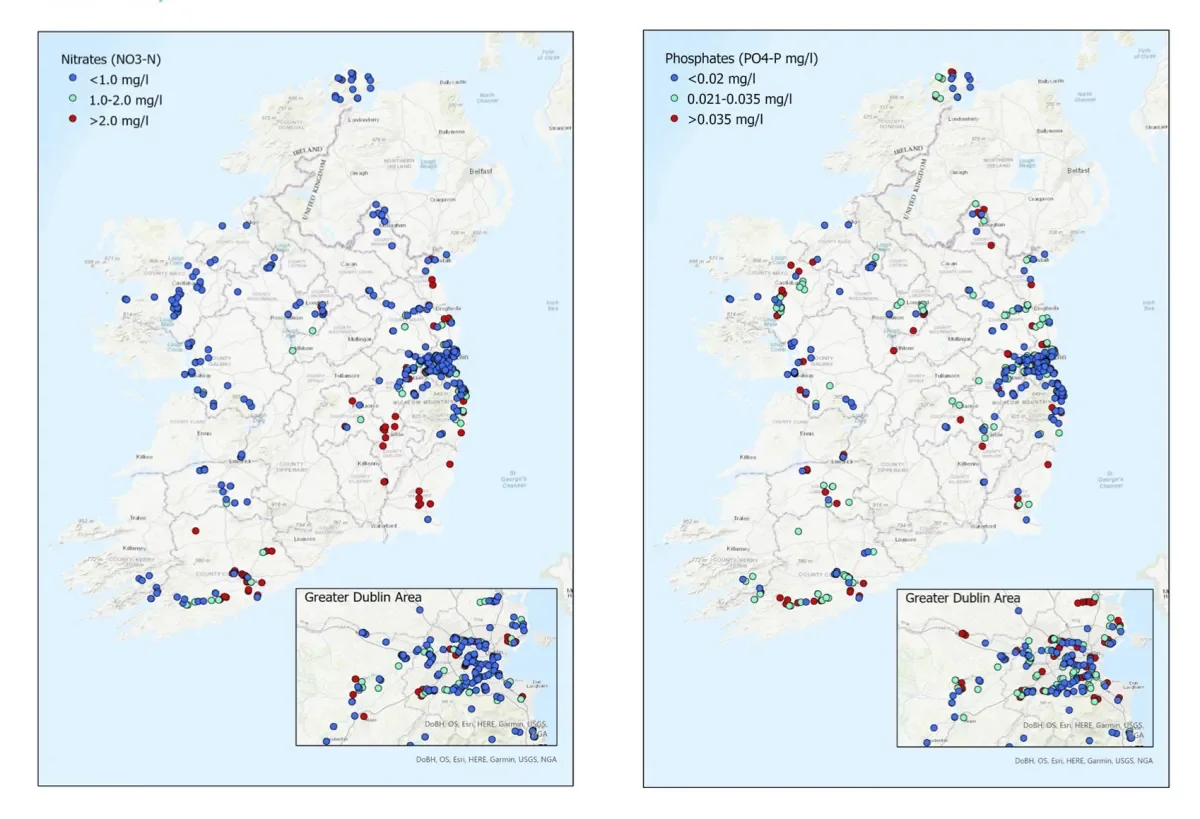

WaterBlitz 2021 gives snapshot of the health of Ireland’s waterways
Dublin City University’s Water Institute and Earthwatch have today published the results of its second WaterBlitz. The WaterBlitz is a survey of water bodies; rivers, lakes, streams and ponds in Ireland, that was conducted by citizen scientists over four days, May 7th - 10th of this year.
Key facts and figures from the Water Blitz
- 583 samples were collected over 4 days across Ireland
- 33 of the 46 river catchments nationwide were sampled
- 38% of streams and 20% of rivers tested for nitrates had lower quality water.
- 26% of streams and 30% of rivers tested for phosphates had lower quality water.
- Litter was present at 26% of sample locations in Dublin
- Participants included 23 river and environmental groups, 17 Tidy Towns and community groups, 4 angling groups and 10 schools.
Read the full report here.
The first WaterBlitz, which took place in September 2019, found that over one third of locations surveyed were littered, with 18% of rivers tested had high levels of nutrient nitrates but that Dublin had the lowest levels of pollutants of the four European areas surveyed (Paris, London, Luxembourg).
Dr. Susan Hegarty from DCU’s Water Institute said
“The importance of the data collected in the WaterBlitz cannot be underestimated. So many local community and environmental groups, families and individuals measured the water quality of water bodies that they love. The results show that water quality is under pressure from human activities particularly in the East of the country and in urban areas.“

What was measured in the Waterblitz?
Citizen scientists taking part in the WaterBlitz tested for the nutrients nitrates and phosphates. These nutrients are the most common pollutants in European waters.
They were also asked to observe algae, scum on the water surface and levels of litter, particularly personal protective equipment (PPE), at their chosen waterway.
Nitrates are often found in water in the presence of fertilisers. When washed into our watercourses and waterbodies, they can cause a process of eutrophication, which leads previously healthy lakes or rivers to become choked with algae, severely depleting water-dissolved oxygen, resulting in the elimination of other forms of aquatic life.
Phosphates are commonly found in water following the use of fertilisers and detergents. They can also come from domestic sewage and are a major source of water pollution. Like nitrates, phosphates encourage the growth of algae.
About DCU Water Institute
The DCU Water Institute is a centre of excellence in water research. It works in partnership with stakeholders across academia, industry, agency and society in its research to develop solutions to national and global water-related problems.
It specialises in technology developments across science, engineering and computer science domains with strong communications focus and policy and business drivers. These areas are reflected in its academic members, who come from all five faculties of DCU.
About Earthwatch and the WaterBlitz
Earthwatch’s mission is to engage people worldwide in scientific field research and education to promote the understanding and action necessary for a sustainable environment.
The WaterBlitz is a FreshWater Watch activity for the whole community. The data collected by hundreds of people over this same time period gives a comparable snapshot of water health within a region.
The WaterBlitz ran in Ireland, the UK (in the Thames Valley and Bristol Avon catchment areas) France, Luxembourg, Italy and Sweden.
This year’s WaterBlitz was made possible through partnership with the Royal Bank of Canada as part of its ongoing commitment to local water quality.
